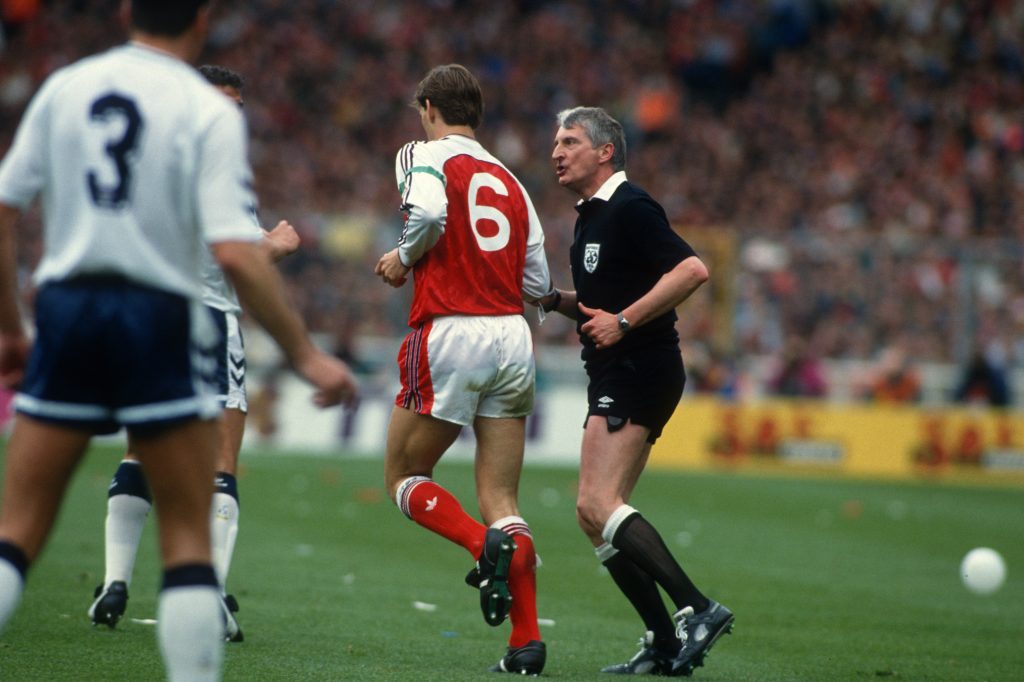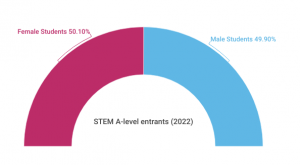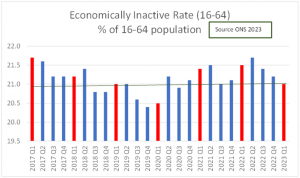Abuse sees referee numbers fall by a third

14 April 1991 - FA Cup Semi Final - Arsenal v Tottenham Hotspur - Referee Ray Lewis has a word with Tony Adams of Arsenal. - (Photo by Mark Leech/Offside via Getty Images)
Football referees as young as 14 have been receiving abuse on the football field, as a mass exodus of people leave the profession.
The number of referees in the country has fallen by a third in the last five years (33,000 to 23,000).
Whilst this is in part due to the pandemic forcing referee training and recruitment sessions to be cancelled, abuse levels are feeding into this.
Research from the University of Portsmouth found that 93% of referees in England had received abuse at some point in their career.
Kent resident Abigail Royden, 17, decided to start refereeing to give her an alternative perspective on the sport, offering a new challenge and the opportunity to get into football again.
She takes charge of games ranging from Under 7s to Under 10s, but even with a younger demographic, abuse is still present in the game.
“On occasions, you do receive it [abuse] from managers, especially if they really get into the game.
“But parents, especially will let you know, if they don’t agree with the decision you’ve made, and you will get shouted at from the sidelines throughout the game.
“I think the reason why young people leave refereeing is because it literally leaves you with a lower self esteem.”
It isn’t just Kent that has seen abusive behaviour towards referees – as Sam Wightwick from Essex found out.
He refereed for three matches in the county, before vowing never to do it again.
The decision was made after an altercation occurred during his third and final game.
Mr Wightwick had missed a handball decision – which he retrospectively admits should have been given – with five minutes of the game to go,
The opponents then went up the other end and scored, resulting in violence breaking out: “I got shoved in the back”, Mr Wightwick said.
“Someone threw a punch at me; I dodged it, and the captain then came over to diffuse the situation.
“It made me never want to do it again, put it that way.”
He doesn’t see why others choose to continue refereeing after his own experience with the whistle either: “Why do they want to put themselves through it?
“Like forty quid to be abused basically.”
Higher levels of the game aren’t immune to abuse either, and some believe that it actually has a knock-on effect when those at grassroots level see inappropriate conduct on the TV.
Ray Lewis refereed in the English top flight between 1969 to 1993, including the infamous seven minutes of the Hillsborough disaster.
He believes that behaviour towards referees at grassroots level could stem from observing inappropriate conduct in the Premier League: “Usually if there’s something on a Saturday night on Match of the Day, there’s someone around the country that will try the exact same thing on the Sunday.”
Asked if there could be a solution, Mr Lewis said: “It’s like most things, if you don’t penalise these people where it hurts the most, i.e., in their pocket, you know, they probably will have a go at you the following week.”






